It started this Thursday (23), in Rio, the 8th Edition of the Green Rio Fair, international event that promotes the Bioeconomy in Brazil, through the dissemination of products, research, services, and solutions. The fair happens until Saturday (25). This year, UEA is participating for the first time, and is presenting four products, results of meaningful research developed by its professors: the açaí ecopanel, the plastic wood made of tucumã seed, the wooden bioprosthesis , and the bioplastic.
To UEA Rector, Prof. Dr. CLeinaldo Costa, to be for the first time at Green Rio is very important not only for the University, but also to the State of Amazonas.
Discussing bioeconomy and diversity, showing our actions toward biodiversity can strengthen the development of a new economic matrix to Amazonas. We have here an opportunity to generate knowledge and to take new business to our State, converging the interests of academia and economy to impact in labor and income in a near future. It is the Universitys responsibility to prospect in Amazonia, to develop research, to make science, and show that to the world. All that can be done without forgetting to preserve our forest, our culture and our traditions,” highlighted Costa.
UEA products highlighted
‘Ecopanel of açaí fiber’
The production of ecopanels, based on the Circular Economy, is made from the residues of the açaí fruit discarded at the igarapés (rivers) and artificial outflow channels in the cities, generating environmental impact. From this process, the product consists on the reusing of all the chain of raw material, creating subproducts, jobs, income, and technology. The fibers are put together by the use of mamona oil, and the whole process may avoid the CO2 emission that happens in the industrial production that uses synthetic resin of Ureia Formaldehyde, very common in our days.
‘Bioplastic made of tucumã seed’
It is produced from the fiber of Piriquiteira tree (Guazuma ulmifolia), obtained in Parintins (AM). The natural fiber presents an excellent resistance to traction. After been extracted, the natural fibers pass by a mechanic process and the compounds are prepared by the fusion mixture procedure. The Piriquiteira fibers can be used in structural parts of cars, vessels, planes, packaging, and even in the construction industry products. The traction mechanic tests showed that the chemical modification generated an enhance of 72% of the fiber elasticity.
‘Plastic wood of tucumã seed’
This is produced from the tucumã seed and recycled plastic. The fabrication process of the plastic wood begins with the breaking of the tucumã seeds. Its woody part is ground till it become small particles. The same happens to the hard plastic that are recycled and ground. Thus, the particles of tucumã and recycled plastic are mixed together and inserted in an industrial injector that heats the materials till they merge. The plastic wood presents physic-mechanical characteristics which are similar to the materials used in the production of flooring, panels, lining, chairs, etc.
‘Wooden Bioprosthesis (made of cumaru, pau d’arco e roxinho typical Amazonian wood)
These types of wood are raw material of the Bioprosthesis. The wooden plates which will make the prototype will pass by a process of natural drying. The foot and ankle joints make a complex system that should provide higher degree of stability than of flexibility. The wooden plates are covered by an adhesive film and quickly pressed with manual fixers to maximum resistance. The Bio prosthesis makes a stable basis to an upright position; a rigid lever to the impulse; absorb the weight; adapt to irregularities on the ground; and transform the torsion through the inferior articulation of the hip.
About the Green Rio 2019
The exhibit has representatives of the Green Economy from the sustainable and organic sectors. Its 6th edition happens between May 23rd and 25th, at Marina da Gloria, in Rio de Janeiro.
Text: Amanda Mota /ASCOM UEA
Translation: Maristela Silva






